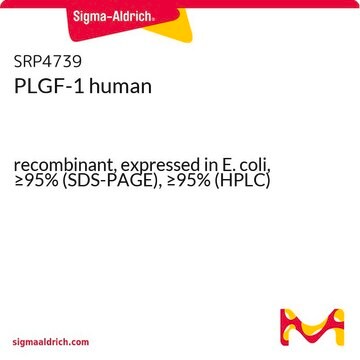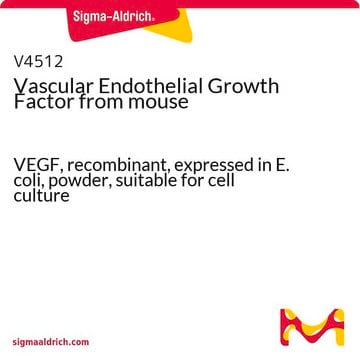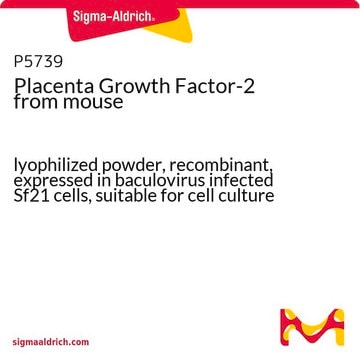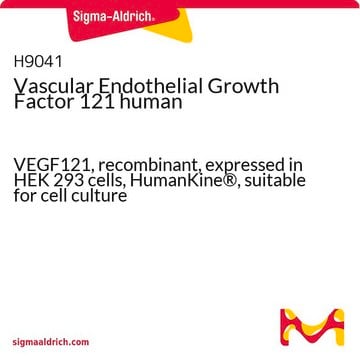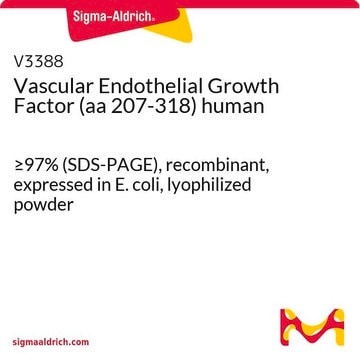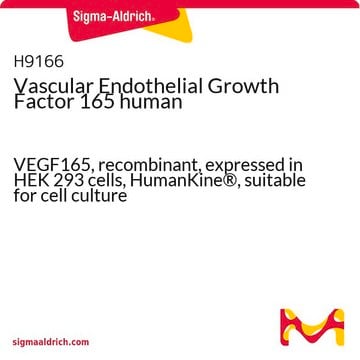P1588
Placenta Growth Factor human
≥95% (SDS-PAGE), recombinant, expressed in E. coli, powder, suitable for cell culture
Synonym(s):
PGF, PlGF
About This Item
Recommended Products
Product Name
Placenta Growth Factor human, PlGF, recombinant, expressed in E. coli, powder, suitable for cell culture
biological source
human
Quality Level
recombinant
expressed in E. coli
Assay
≥95% (SDS-PAGE)
form
powder
quality
endotoxin tested
mol wt
29 kDa
packaging
pkg of 10 and 50 μg
storage condition
avoid repeated freeze/thaw cycles
technique(s)
cell culture | mammalian: suitable
impurities
<1.0 EU/μg
shipped in
dry ice
storage temp.
−70°C
Biochem/physiol Actions
Physical form
Preparation Note
Reconstitution
Analysis Note
Storage Class Code
11 - Combustible Solids
WGK
WGK 3
Flash Point(F)
Not applicable
Flash Point(C)
Not applicable
Personal Protective Equipment
Choose from one of the most recent versions:
Already Own This Product?
Find documentation for the products that you have recently purchased in the Document Library.
Articles
VEGF-A stimulates blood vessel growth via endothelial cell proliferation, migration, and survival during embryonic development.
VEGF-A stimulates blood vessel growth via endothelial cell proliferation, migration, and survival during embryonic development.
VEGF-A stimulates blood vessel growth via endothelial cell proliferation, migration, and survival during embryonic development.
VEGF-A stimulates blood vessel growth via endothelial cell proliferation, migration, and survival during embryonic development.
Our team of scientists has experience in all areas of research including Life Science, Material Science, Chemical Synthesis, Chromatography, Analytical and many others.
Contact Technical Service